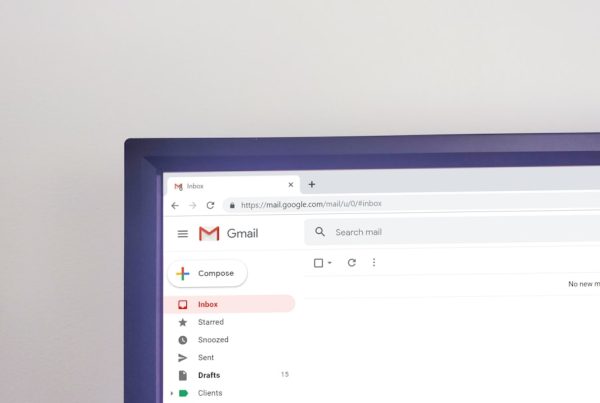In today’s digital age, the prevalence of online scams has reached alarming levels, with cybercriminals constantly devising new tactics to deceive unsuspecting individuals. One such scam that has gained notoriety is the Norton email scam. As a user of Norton products, you may receive emails that appear to be from the company, claiming to offer support, renew subscriptions, or alert you to security issues.
These emails often look legitimate, complete with official logos and professional language, making it easy for you to fall victim to their deceitful schemes. Understanding the nature of these scams is crucial for protecting yourself and your personal information. The Norton email scam typically involves phishing attempts where scammers impersonate Norton to extract sensitive information from you.
They may request your login credentials, credit card details, or other personal data under the guise of providing essential services. As you navigate your inbox, it’s vital to remain vigilant and informed about these scams. By recognizing the signs and understanding how they operate, you can safeguard yourself against potential threats and ensure that your online experience remains secure.
Key Takeaways
- Norton email scams are fraudulent emails that impersonate Norton Security in an attempt to steal personal information or money from unsuspecting victims.
- Signs of a Norton email scam include unsolicited emails requesting personal information, urgent warnings about security threats, and offers that seem too good to be true.
- Falling for a Norton email scam can result in identity theft, financial loss, and compromised computer security.
- If you’ve fallen for a Norton email scam, immediately change your Norton account password, run a full system scan for malware, and contact your bank or credit card company to report any unauthorized transactions.
- Report Norton email scams to Norton Security, the Federal Trade Commission, and the Anti-Phishing Working Group to help prevent others from becoming victims.
How to Identify Norton Email Scam
Verify the Sender’s Email Address
Examine the sender’s email address closely. Scammers often use addresses that are similar to official ones but contain slight variations or misspellings. For instance, an email from “support@norton.com” may be spoofed as “norton.support@gmail.com.” Always verify the sender’s address before taking any action.
Beware of Urgency Tactics
You may receive messages that claim your account has been compromised or that immediate action is required to avoid service interruption. These emails often include links that direct you to fraudulent websites designed to steal your information. If you encounter an email that pressures you to act quickly or provides alarming news about your account, take a step back and assess the situation.
Legitimate Companies Don’t Rush You
Legitimate companies like Norton will not rush you into making hasty decisions regarding your account. If an email is trying to create a sense of urgency, it’s likely a scam. Always prioritize caution and verify the authenticity of the email before taking any action.
Consequences of Falling for Norton Email Scam

Falling victim to a Norton email scam can have serious repercussions for you and your personal information. One of the most immediate consequences is the potential loss of sensitive data. If you inadvertently provide your login credentials or financial information to scammers, they can gain unauthorized access to your Norton account or even your bank accounts.
This breach of security can lead to identity theft, where your personal information is used for fraudulent activities without your consent. In addition to financial loss and identity theft, falling for a Norton email scam can also result in emotional distress. The realization that you have been deceived can lead to feelings of embarrassment, anxiety, and frustration.
You may find yourself constantly worrying about the security of your accounts and the potential fallout from the scam. Moreover, recovering from such incidents can be time-consuming and complicated, requiring you to take various steps to secure your accounts and restore your peace of mind.
Steps to Take if You’ve Fallen for Norton Email Scam
| Steps to Take if You’ve Fallen for Norton Email Scam |
|---|
| 1. Change your Norton account password immediately. |
| 2. Contact Norton customer support to report the scam and seek assistance. |
| 3. Check your computer for any malware or viruses and run a full system scan. |
| 4. Review your financial accounts for any unauthorized transactions and report them to your bank or credit card company. |
| 5. Be cautious of any future emails claiming to be from Norton and verify their authenticity before taking any action. |
If you suspect that you have fallen victim to a Norton email scam, it is crucial to act quickly to mitigate any potential damage. The first step is to change your Norton account password immediately. This action will help prevent unauthorized access to your account and protect your personal information from further exploitation.
Ensure that your new password is strong and unique, combining letters, numbers, and special characters. Next, monitor your financial accounts closely for any unusual activity. If you provided credit card information or other financial details in response to the scam email, contact your bank or credit card company right away.
They can assist you in freezing your accounts or disputing any unauthorized transactions. Additionally, consider placing a fraud alert on your credit report with one of the major credit bureaus. This alert will notify creditors to take extra steps in verifying your identity before opening new accounts in your name.
Reporting Norton Email Scam
Reporting a Norton email scam is an essential step in combating these fraudulent activities and protecting others from falling victim as well. You can start by forwarding the suspicious email directly to Norton’s official support team at their designated email address for reporting scams. This action helps them investigate the issue further and take necessary measures against the scammers.
In addition to reporting the scam to Norton, consider filing a complaint with relevant authorities such as the Federal Trade Commission (FTC) or your local consumer protection agency. These organizations collect data on scams and can help raise awareness about ongoing fraudulent activities in your area. By reporting the incident, you contribute to a larger effort aimed at curbing online scams and protecting consumers like yourself.
Protecting Yourself from Norton Email Scam

To protect yourself from falling victim to Norton email scams in the future, it’s essential to adopt proactive measures that enhance your online security. One effective strategy is to enable two-factor authentication (2FA) on your Norton account and other online services whenever possible. This additional layer of security requires you to verify your identity through a secondary method, such as a text message or authentication app, making it more difficult for scammers to gain access even if they have your password.
Furthermore, educate yourself about common phishing tactics and stay informed about the latest scams targeting consumers. Regularly reviewing resources provided by cybersecurity organizations can help you recognize emerging threats and understand how to respond effectively. Additionally, consider using reputable antivirus software that includes phishing protection features, which can help identify and block malicious emails before they reach your inbox.
Legal Actions Against Norton Email Scammers
While it may seem daunting, pursuing legal action against scammers can be an effective way to hold them accountable for their actions. If you have suffered significant financial loss due to a Norton email scam, consult with a legal professional who specializes in cybercrime or consumer protection law. They can guide you through the process of filing a lawsuit or seeking restitution for damages incurred as a result of the scam.
Moreover, participating in class-action lawsuits against known scammers can amplify your voice and increase the chances of achieving justice. By joining forces with others who have experienced similar fraud, you can collectively pursue legal action against those responsible for these deceptive practices. While legal proceedings may take time, they serve as an important step toward deterring future scams and protecting consumers from harm.
Conclusion and Final Thoughts on Norton Email Scam
In conclusion, staying informed about the Norton email scam is vital for safeguarding yourself against potential threats in today’s digital landscape. By understanding how these scams operate and recognizing their warning signs, you can take proactive steps to protect your personal information and financial security. Remember that vigilance is key; always scrutinize emails claiming to be from Norton or any other service provider before taking action.
If you do find yourself falling victim to such scams, don’t hesitate to take immediate action by changing passwords, monitoring accounts, and reporting the incident to relevant authorities. By doing so, you not only protect yourself but also contribute to a broader effort aimed at combating online fraud. Ultimately, being proactive and informed will empower you in navigating the complexities of online security while ensuring that you remain one step ahead of cybercriminals seeking to exploit unsuspecting individuals like yourself.
If you’re concerned about the Norton email scam and looking for more information on how to protect yourself from similar cybersecurity threats, you might find the article on Critical Infrastructure Security particularly useful. This article delves into various aspects of cybersecurity, offering insights and strategies to safeguard against sophisticated email scams and other cyber threats. Understanding these protective measures can be crucial in maintaining your digital safety.
FAQs
What is the Norton email scam?
The Norton email scam is a fraudulent email that appears to be from Norton, a well-known antivirus software company, but is actually a phishing attempt to steal personal information or install malware on the recipient’s computer.
How can I identify a Norton email scam?
Norton email scams often contain spelling or grammatical errors, request sensitive information such as passwords or credit card numbers, and may include suspicious links or attachments. It’s important to verify the sender’s email address and be cautious of any unexpected or unsolicited emails.
What should I do if I receive a Norton email scam?
If you receive a suspicious email claiming to be from Norton, do not click on any links or provide any personal information. Instead, report the email as spam or phishing to your email provider and delete it from your inbox.
How can I protect myself from Norton email scams?
To protect yourself from Norton email scams, it’s important to keep your antivirus software and email filters up to date, be cautious of unsolicited emails, and verify the legitimacy of any requests for personal information from Norton or any other company.



